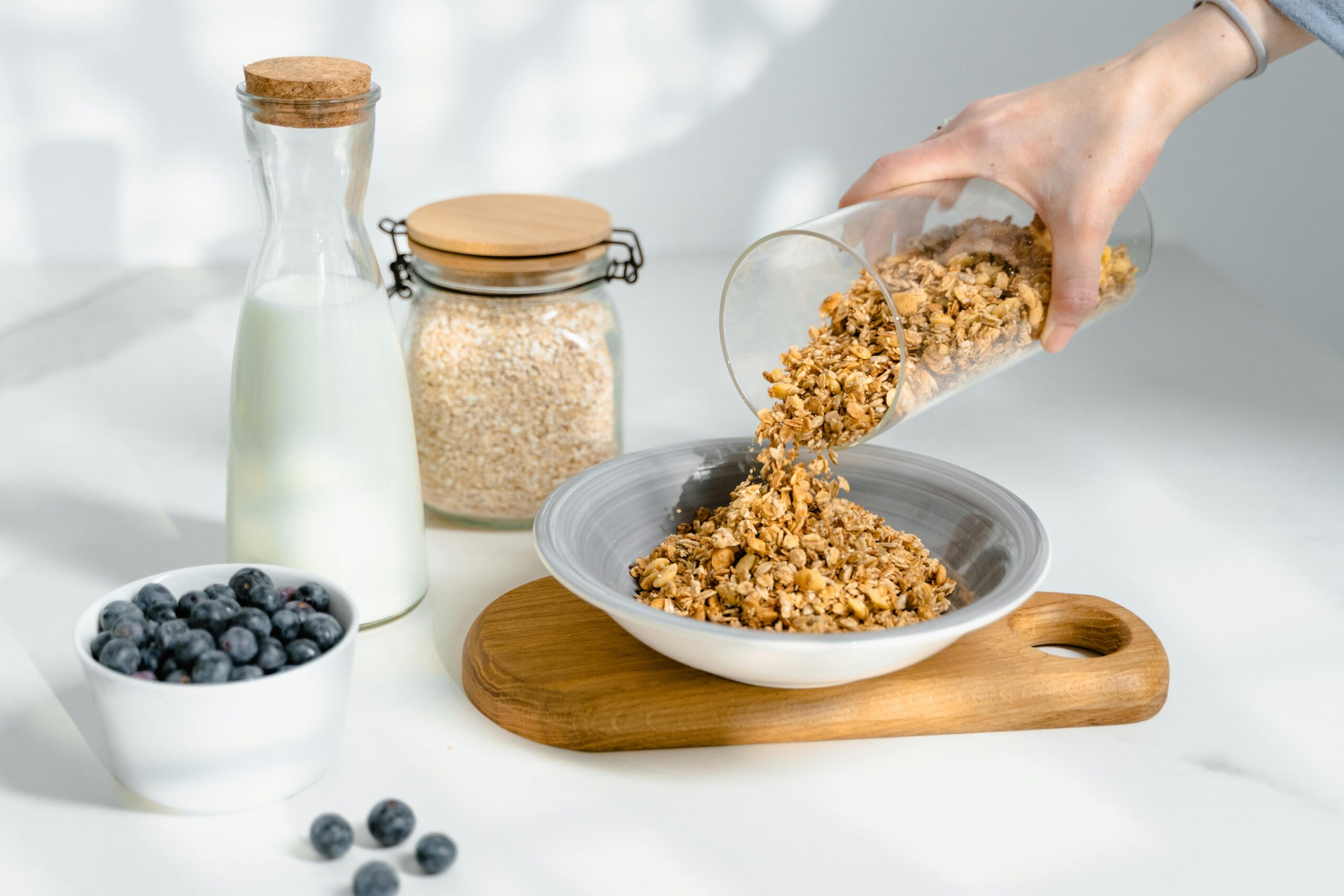
Are you eating enough protein? What is the ‘right’ amount of protein to eat daily? Fears exist about protein, such as health risks of over-eating meat and not wanting to get too bulky. Remember, a balanced diet of carbs, protein and minerals is essential for optimum health, so this blog is NOT about reducing carbs; it’s more about defining what protein is, understanding the benefits of eating it and how you can incorporate more protein into your daily routine.

Benefits of Eating Protein
Protein is often referred to as the building block of life, and for good reason. It is essential for the growth, repair, and maintenance of tissues in the body. Whether you are an athlete aiming for peak performance, a professional seeking better focus and energy, or someone interested in long-term health, understanding the importance of protein and incorporating it into your diet can be transformative.
Why is Protein Essential?
Protein plays a pivotal role in numerous bodily functions. It’s involved in building muscle, maintaining bone density, creating enzymes and hormones, and supporting immune health. Unlike fats and carbohydrates, which are stored in the body for energy reserves, protein is not stored in the same way and must be replenished regularly through diet.
Amino Acids: The Building Blocks Proteins are composed of amino acids. There are 20 different amino acids, of which nine are essential, meaning they must be obtained from food. These amino acids are the key to cellular repair, muscle growth, and other critical body functions. Consuming a variety of protein sources ensures you receive all essential amino acids for optimal health.

Health Benefits of a Protein-Rich Diet
- Supports Muscle Health and Strength Protein intake is crucial for muscle repair and growth, making it a must for athletes and anyone engaging in physical activities. After exercise, consuming protein can help reduce muscle soreness and accelerate recovery.
- Weight Management Protein has a higher thermic effect compared to fats and carbohydrates, which means it requires more energy to digest. This contributes to a greater sense of fullness and can aid in managing hunger and preventing overeating. For those looking to maintain or lose weight, a protein-rich diet can be particularly beneficial.
- Promotes Healthy Aging As we age, muscle mass naturally declines, a process known as sarcopenia. Consuming adequate protein can help slow this process, preserving strength and mobility into later years. Research suggests that protein intake is essential for maintaining bone health and preventing osteoporosis.
- Boosts Metabolism Because of its higher energy expenditure during digestion, protein can modestly boost metabolism. This means that even at rest, your body burns more calories when digesting protein-rich foods compared to other macronutrients.
Best Sources of Protein
While animal-based proteins such as chicken, fish, beef, and dairy provide complete proteins, plant-based sources like beans, lentils, tofu, and quinoa also contribute significantly to a well-rounded diet. Combining different plant-based proteins throughout the day can ensure that you meet your amino acid needs.
Tips for Incorporating More Protein into Your Diet:
- Start your day with eggs, Greek yogurt (not ‘greek-style’ yoghurt) , or a protein smoothie.
- Add beans or legumes to salads and soups.
- Opt for snacks like almonds, cheese, or hummus with veggies.
- Choose lean cuts of meat or plant-based alternatives for main meals.

How much protein should I eat?
Women typically eat less protein than men and a very common pattern is to eat very little (protein) at breakfast, a bit more for lunch and then load up during the evening meal. However, we need a steady supply of amino acids throughout the day.
The current guidelines are 1g of protein per kg of body weight to prevent protein deficiency. This is based on the general population and does not take into account factors such as the menopause or daily activity levels. So, if you are very active and exercising regularly you need between 1.4 to 2g of protein per kg of body weight per day.
EXAMPLE: If you weigh 70kg and do strength training or other forms of exercise on a regular basis you will need between 98g and 140g per day.
Aim for the upper end of this scale if you strength train 3 x per week or more.
So, taking an average person eating 3 x meals per day with snacking twice a day, spreading the amount of protein throughout a day might look like this:
Breakfast: 25 to 35g
Lunch: 25 to 35g
Dinner: 40 to 60g
Snacks: 10 to 15g
At the end of this blog you will find some useful ‘protein toolkits’ to help you with meat and non-meat options. For active women or those struggling to hit their daily protein goals, it is worth considering taking a protein supplement such as whey protein. This comes in powder form and can be mixed with water, coconut water, oat milk etc or popped into a smoothie.
Meat sources of protein:
| Food Item | Calories (kcal per 100g) | Protein (g per 100g) |
| Chicken breast | 165 | 31 |
| Salmon steak | 206 | 22 |
| Beef 200g (lean) | 350 | 39 |
| Pork loin | 242 | 27 |
| Tuna steak | 132 | 29 |
| Turkey breast | 135 | 30 |
| Cod loin steak | 82 | 18 |
| Shrimps 125g | 99 | 24 |
Non-meat sources of protein (100g portion unless otherwise stated)
| Food Item | Calories (kcal per 100g) | Protein (g per 100g) |
| Greek yoghurt | 54 | 10 |
| Eggs (per egg) | 66 | 6 |
| Chickpeas | 197 | 8 |
| Cauliflower (200g) | 50 | 4 |
| Tofu | 102 | 12 |
| Spinach (200g) | 60 | 6 |
| Broccoli (200g) | 78 | 5 |
| Lentils | 92 | 8 |
| Oats (40g) | 148 | 4.5 |
| Edamame | 133 | 11 |
| Cottage cheese | 104 | 12 |
Final Thoughts
Protein is more than just a nutrient; it is a foundation for health and vitality. By prioritizing high-quality protein sources and ensuring a balanced intake, you can enjoy enhanced energy levels, better weight management, and long-term wellness. Whether you prefer animal or plant-based proteins, integrating this powerhouse nutrient into your meals can lead to significant benefits for your body and mind.

